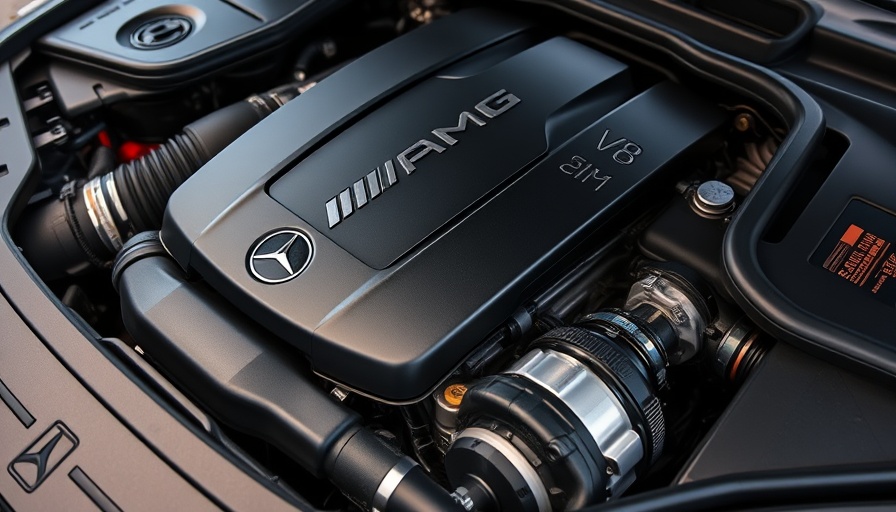
Mercedes-AMG Reinvigorates the V8 Legacy
In a bold move that signals a commitment to its performance heritage, Mercedes-AMG is developing a new V8 engine, as confirmed by AMG boss Michael Schiebe in a recent interview. This comes at a time when the automotive industry is heavily leaning towards electrification, leaving many enthusiasts concerned about the future of traditional combustion engines.
Understanding the Shift in Automotive Trends
The push for electric vehicles (EVs) has transformed how manufacturers approach engine design. While some may think the shift spells the end for powerful engines like V8s, Schiebe's statements reveal a different trajectory. Unlike the four-cylinder PHEV systems that have met hurdles in models like the AMG C 63, there’s a clear market demand for the thrill and performance offered by V8 engines. Schiebe stressed that the new engine is not just a token gesture but a serious plan to integrate the V8 into future models while complying with Euro 7 regulations.
What Makes the New V8 Special?
This upcoming V8 will build upon the existing M177 4.0-liter twin-turbo inline engine currently powering several AMG models, including the GLE 63 S and the AMG GT series. With the integration of mild hybrid technology, this engine promises to deliver the raw power enthusiasts crave while also adhering to the latest environmental standards, securing its relevance until full electrification hits.
The Future of the V8 in High-Performance Models
As Mercedes-AMG continues to roll out new models, the possibilities for the V8 seem promising. The speculation surrounding vehicles like the upcoming Mercedes-AMG CLE 63 hints at a resurgence of the classic performance engine. However, amidst these developments, the question remains: how long will we continue to see V8 engines on the market? Schiebe notes that this depends on market conditions and regulations, which suggests that while the engineering team is determined to push forward, market sentiment will ultimately guide the fate of this powerful engine series.
Conclusion: Embracing Change While Honoring Tradition
The decision to develop a new V8 engine at AMG is a thrilling development for car owners and enthusiasts. As the automotive landscape evolves, it's reassuring to see manufacturers committing to performance without sacrificing environmental responsibility. Stay tuned for more updates as Mercedes-AMG navigates the future of high-performance driving.
 Add Row
Add Row  Add
Add 




Write A Comment